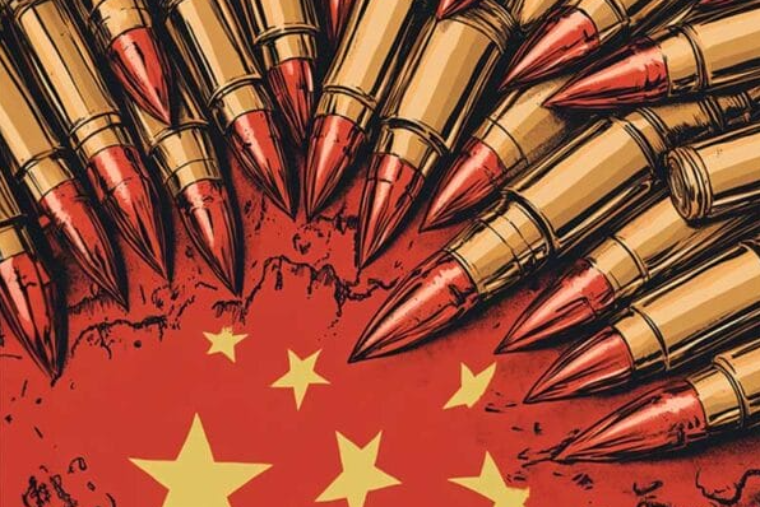The cost of out-sourcing will always come back to bite.
The recent decision by China to halt the export of two critical components —nitrocellulose and antimony— has raised alarms within the U.S. ammunition manufacturing industry and among defense experts. These materials are indispensable in the production of propellant powder and primers, and their restriction threatens to create significant supply chain disruptions. As geopolitical tensions rise and global conflicts, like the war in Ukraine, drive up demand for ammunition, the U.S. faces an uncertain future in maintaining adequate ammunition supplies for both military and civilian markets.
This article explores the implications of China’s export restrictions and the broader context of critical material dependencies, with recommendations offered by AmmoLand News contributor John Farnam, a veteran of the ammunition industry, on how Americans can prepare for the coming shortages.
China’s Stranglehold on Critical Materials
China’s dominance in the production of antimony and nitrocellulose cannot be overstated. As the world’s largest producer of antimony, China accounts for nearly half of global production and supplies 63% of U.S. antimony imports. Antimony plays a vital role in the defense industry, from armor-piercing ammunition to night vision goggles and precision optics. Nitrocellulose, or “guncotton,” is essential for making propellant powder used in ammunition.
Without these core materials, the U.S. ammunition supply chain is left extremely vulnerable.
By F Riehl, Editor in Chief



